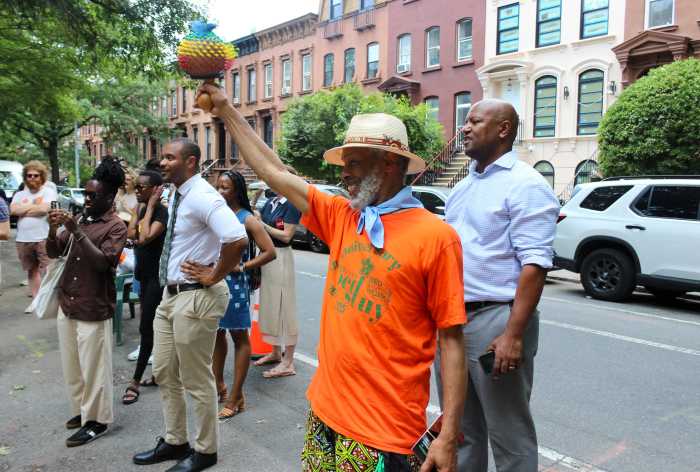The feds are adding insult to Sandy victims’ injuries — again.
Months after storm victims fended off a push by federal agencies to clawback relief payouts from those who got help from more than one source, the government is making another grab.
Now that many Sandy victims are set to receive settlement cash after the Federal Emergency Management Agency got caught allowing insurance companies in the National Flood Insurance Program to systematically shortchange policyholders, the Department of Housing and Urban Development is trying to snatch some of that money from victims who have previously received funding from Build It Back or New York Rising on top of federal aid.
Some local pols are urging both federal agencies to back off the policy to prevent “duplication of benefits” which could force some of the storm’s victims to give up money that they spent two-and-a-half years fighting for.
“Once again, the feds are penalizing our cash-strapped Sandy victims, who have already endured years of aggravation and unjustified denial of flood insurance claims, by requiring them to give back the belated NFIP settlement funds they so desperately need and deserve,” said Sen. Charles Schumer (D–Park Slope). “I strongly urge HUD to waive its ‘duplication of benefits’ recoupment policy in this unique situation, given the circumstances surrounding these victims, including evidence of widespread fraud and years of hardship.”
Schumer and Sen. Kirsten Gillibrand (D–New York) successfully pressed the Federal Emergency Management Agency to back off a push to force Sandy victims to pay back duplicated benefits out of pocket earlier this year, supporting the Disaster Assistance Recoupment Fairness Act, which is still stuck in committee.
Now the federal housing agency, which provided funds to locally run recovery programs including Build It Back and New York Rising, is using the laws against duplication of benefits to demand a chunk of the cash owed to Sandy victims for flood-insurance fraud settlements.
The recoupment laws require that anyone who has agreed to a settlement use the money to repay not only the Community Development Block Grant funds received through the local recovery programs, but also Small Business Administration loans — which one local attorney said is patently unfair.
“The SBA loan is not a grant,” said Mitchell Shpelfogel, who represents nearly four dozen clients who sued their insurance companies for the fraud. “It’s a low interest loan. I have clients who are happy to pay that loan back under the loan’s original terms, and get the funds they are entitled to under their policy.”
But Shpelfogel says there is nothing he can do because of the laws against duplication of benefits — unless, that is, those agencies waive the requirement.
Schumer and Gillibrand sent a letter to both the agencies on July 21 asking for such a waiver — a move allowed if an agency head “considers it to be in the best interest of the Federal Government,” according to Title 42 of the U.S. Administrative Code.
The victims have already had to deal with the aggravation, expense, and delay of a legal battle over fraud that was the direct result of a lack of oversight by the feds, the senators said, so it would be in the best interest of everyone concerned to drop the clawback policy.
“New York homeowners are still working to rebuild nearly three years after superstorm Sandy, and we need to make their work easier, not add to the aggravation,” said Gillibrand. “HUD should absolutely waive its policy so Sandy victims can keep the flood insurance money they desperately need.”






















